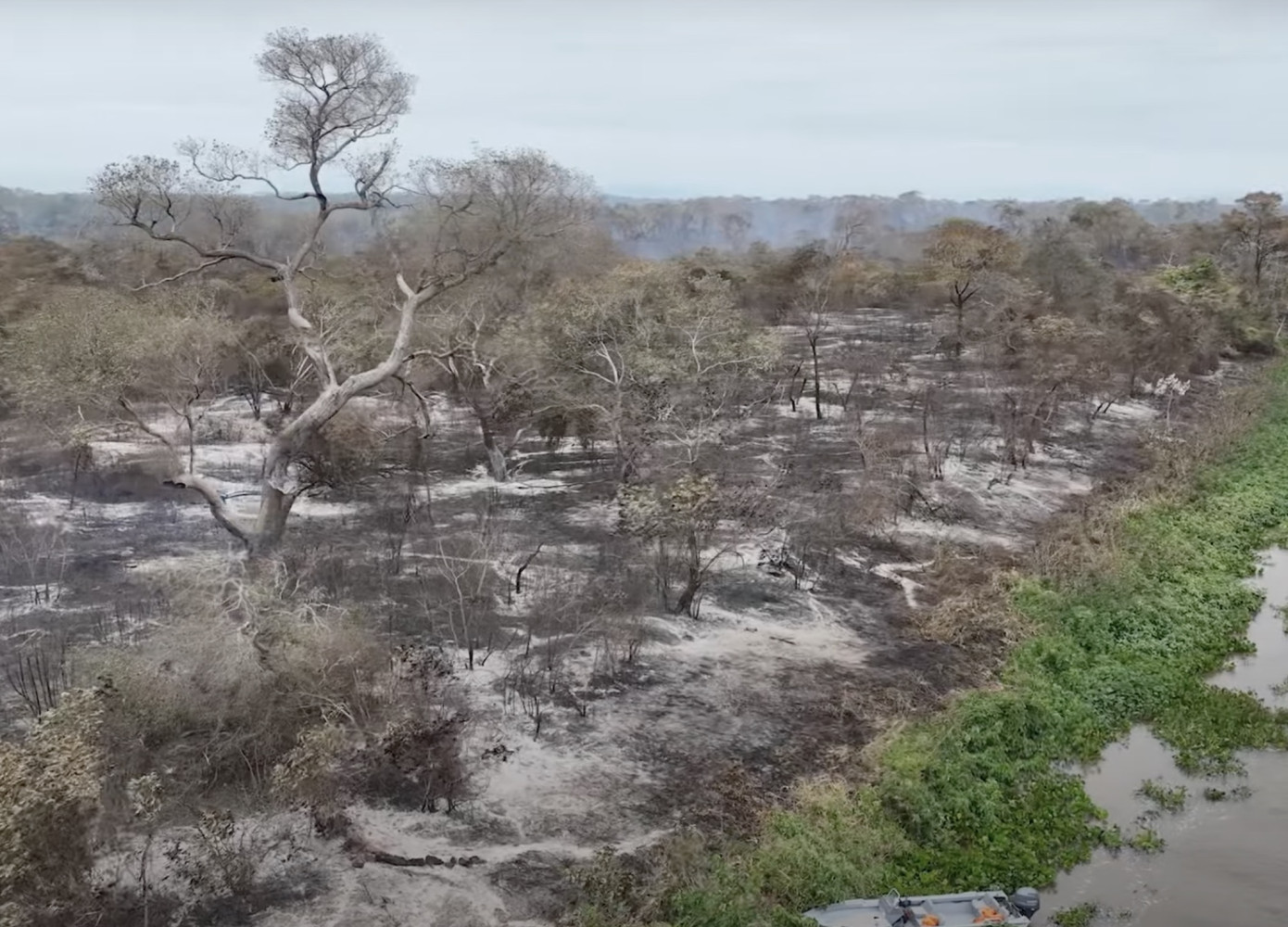Early wildfires have ravaged Brazil’s Pantanal, the world’s largest wetland, with more than 760,000 hectares burned in 2024 alone. This devastation marks a 1,500% increase in fires compared to the same period last year, reports The Guardian.
Blackened trees, dead animals, and scorched earth now dominate the landscape, severely affecting the Pantanal’s rich biodiversity and CO2 storage capabilities. The fires, exacerbated by drought and weak rains, have disrupted the wetland's natural flood cycle, turning it into a tinderbox. This year’s fires, which began unusually early, are expected to be the most destructive in decades.
The Pantanal, spanning Brazil, Bolivia, and Paraguay, covers 16.9 million hectares and is home to endangered species like jaguars and giant river otters. The wetland’s annual "flood pulse," which used to flood for six months, now lasts only two or three months, leading to drier conditions and more severe fires. These blazes, primarily caused by human activity such as land clearing for cattle ranching, have led to a 68% reduction in the Pantanal’s water area since 1985.
The fires not only destroy wildlife but also contribute significantly to global CO2 emissions. In 2020, fires in the Pantanal released 115 million tonnes of CO2, highlighting the wetland’s critical role in carbon storage. Wetlands, which cover only 5-8% of the Earth's land surface, store 20-30% of terrestrial carbon. The ongoing fires threaten this balance, releasing vast amounts of CO2 and exacerbating climate change.
Local communities and experts are calling for increased investment in fire prevention. Despite efforts like the Brazilian air force dropping 48,000 litres of water on burning land, the fires persist. Local residents, suffering from respiratory issues and losing livestock, report minimal support from authorities
